Tougher guardrails on industry, rapid urbanization and waste runoff see migratory birds return to wetlands
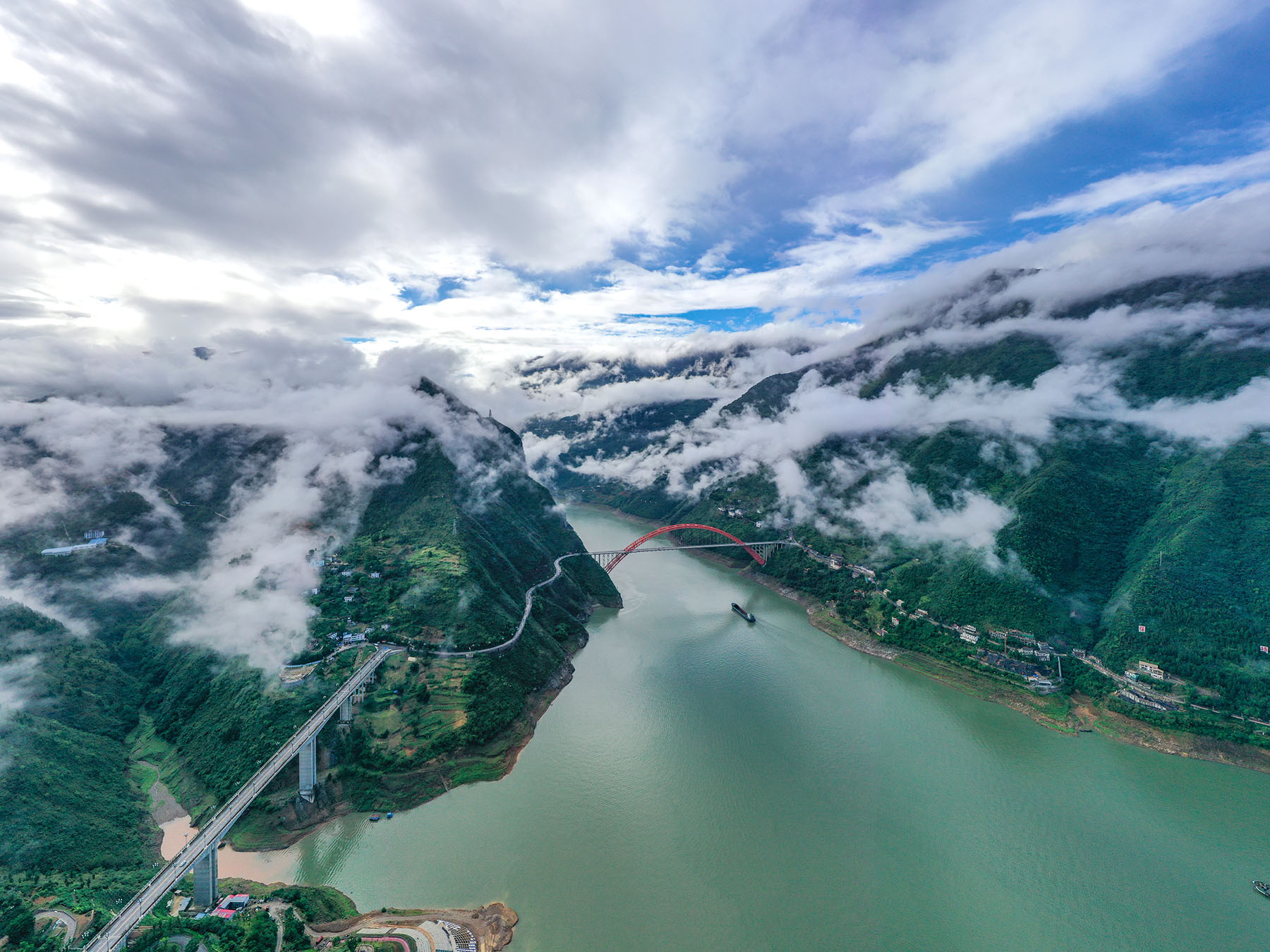
Editor's note: As protection of the planet's flora, fauna and resources becomes increasingly important, China Daily is publishing a series of stories to illustrate the country's commitment to safeguarding the natural world.
With the majority of its water surface crammed with aquaculture enclosures, the oxygen-starved waters of the 11,600-hectare Chenhu Lake Wetland Nature Reserve would often give off a foul smell.
That is Feng Jiang's memory of the reserve located in Wuhan, Hubei province, from back in 2008.
READ MORE: Cleanup campaign brings numerous benefits
The wetland not only feeds the mighty Yangtze River, but is also an important wintering, breeding and migratory stopover site for birds such as tundra swans and mallards in the middle and lower reaches of Asia's longest watercourse.
We will unwaveringly adhere to the principle of pursuing overall ecological conservation and not large-scale development.
Guo Lanfeng, official with the National Development and Reform Commission
Feng works for the management bureau of the reserve and has firsthand experience of its journey from being a polluted area to one of increasing health.
For many years, the heavily polluted waters of the reserve saw a decline in migratory birds.
Today, however, this situation has been turned around on the back of concerted efforts to regulate industry and clean up the water.
Last year, some 100,000 migratory birds are estimated to have wintered in the reserve, an impressive increase from the around 20,000 to 30,000 observed in 2008.
"Last year, we observed the largest number of migratory birds on record," said Feng.
For the 41-year-old engineer, the changes at Chenhu are a microcosm of the progress China has made in promoting ecological civilization, a concept promoted by President Xi Jinping for balanced and sustainable development that features harmonious coexistence between human beings and nature, and high-quality development in the Yangtze River Basin.
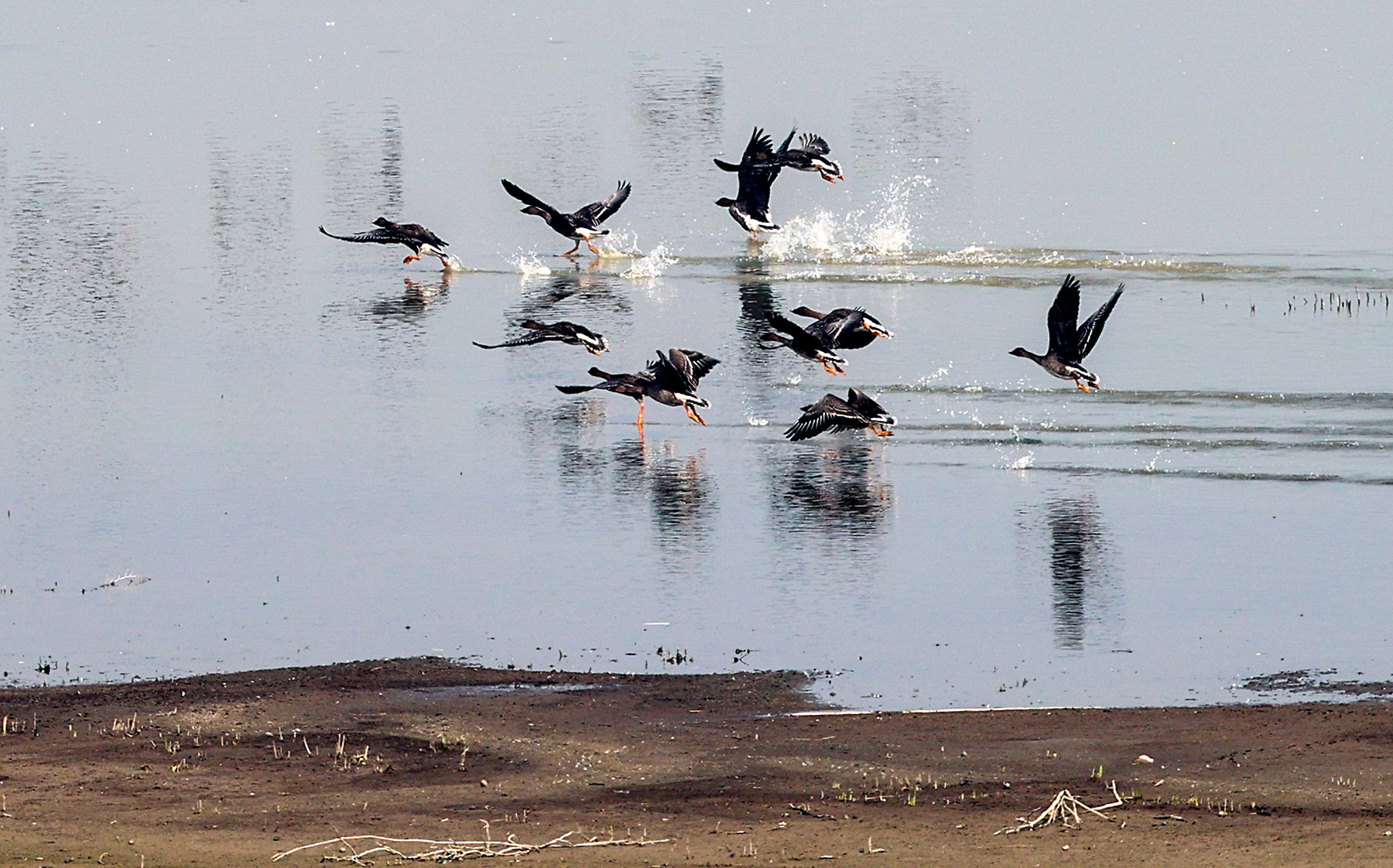
Ecological gains prioritized
Back in 2008, aquaculture enclosures had been widely applied in many areas of the reserve for several decades. As locals tried to make more money from the practice, the density of fish being bred became unsustainable, resulting in a greater adverse impact on the environment, Feng said.
"I clearly remember that the enclosures were so dense in the Huangsi River that only 3 to 5 meters of its over 20-meter-wide watercourse were not covered," he said.
Domestic sewage and pollutants from agricultural production and industrial discharge made the pollution situation in the reserve even worse. The quality of water in the reserve was so bad that it was rated below Grade V, the worst in China's five-tier quality assessment system for surface water.
Feng said he felt relieved after the 18th National Congress of the Communist Party of China in 2012, which emphasized the importance of ecological civilization.
The congress inscribed ecological civilization into the CPC Constitution. In addition to giving high priority to ecological development, the congress pledged to incorporate ecological civilization into all aspects of economic, political, cultural and social advancement.
"It was clear to see after the congress that governments of different levels started to provide more support to our work in terms of funding and policies," he said.
An example Feng recalled was that Wuhan introduced a compensation mechanism for protected wetlands in 2013. Under the mechanism, the Wuhan government would allocate 15 million yuan ($2.07 million) each year to compensate farmers and companies that suffered losses because of damages caused by wild animals or development restrictions.
Many more measures for ecological and environmental conservation have also been rolled out since January 2016, when President Xi presided over a national symposium in Chongqing about the Yangtze River Economic Belt.
The president stressed that concerted efforts should be undertaken to protect the Yangtze, and the overdevelopment of the river should be banned.
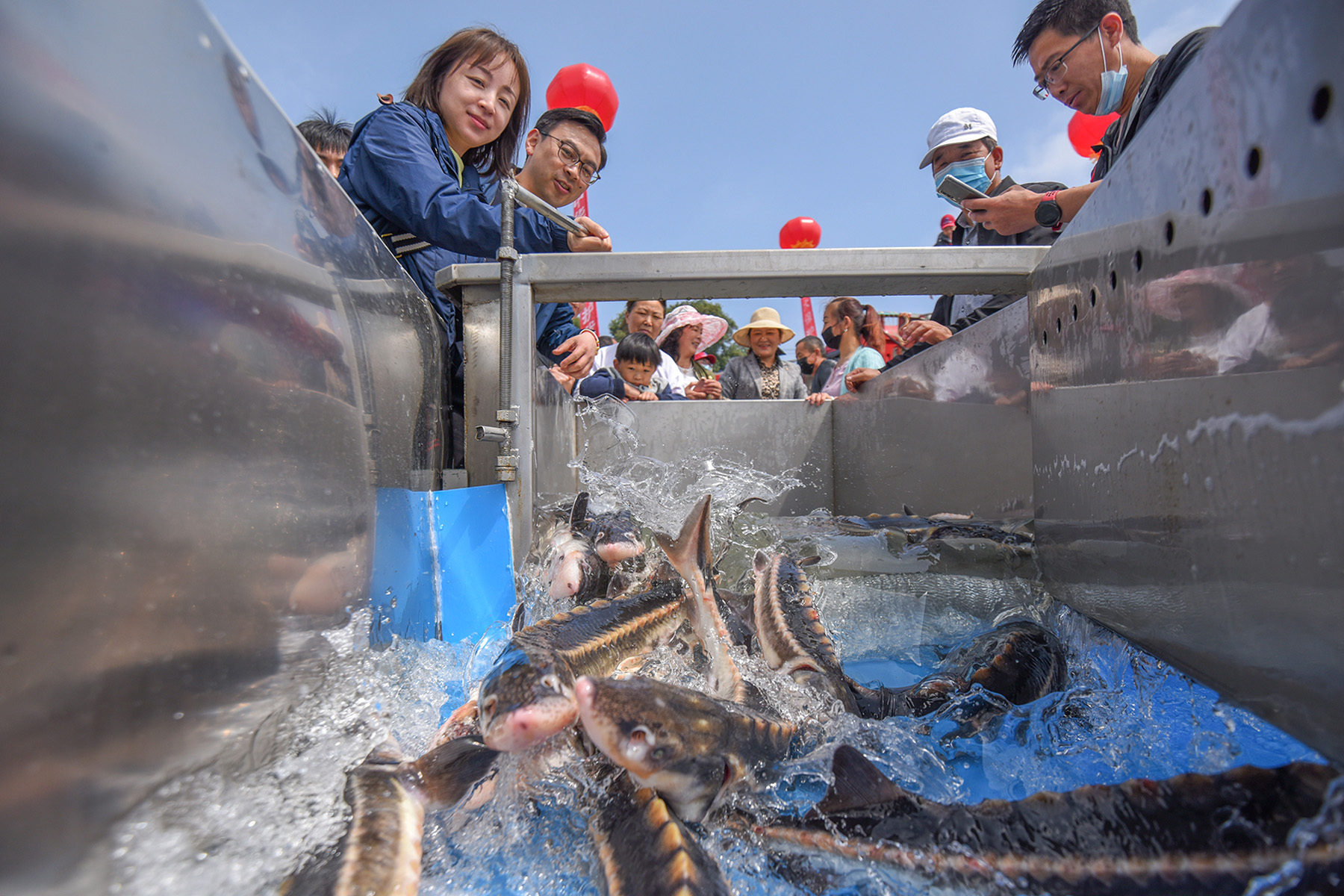
Xi hosted three more symposiums concerning the high-quality development of the belt thereafter, with the first held in Wuhan on April 26, 2018. At the event, he emphasized properly dealing with the relationship between environmental protection and economic development as one of the keys to developing the belt.
Before the symposium, Xi inspected the Hubei Xingfa Chemicals Group, China's largest fine phosphoric chemicals maker and the largest relocated company in the Three Gorges Reservoir region.
"The Yangtze River is China's mother river, and we must protect it," he said. "While enterprises are the major force in protecting and building the ecological environment of the river, we must move all polluting enterprises from along the Yangtze River with resolve ... to root out all the hidden dangers of pollution."
Feng listed a series of environmental protection actions that were rolled out in the Chenhu reserve following the 2016 symposium.
In 2017, all aquaculture enclosures and cages in the reserve were removed, he said. In 2019, the government of Caidian district, where Chenhu is located, started to clear all remaining production activities in the reserve.
These actions showed the government "prioritizing ecological benefits over economic gains". "We can clearly feel the trend and the opportunities that this circumstance has brought to our work," he noted.
Feng said the significant environmental improvement in Chenhu couldn't have happened without pollution control measures carried out elsewhere in the region.
As a bird-watching enthusiast who has devoted himself to looking for rare birds since 2003, Yan Jun, head of the Wuhan Bird Watching Society, is keenly aware of the significant changes in the local aquatic environment.
Previously, there were no aquatic plants in some water bodies at all because of pollution. After years of treatment, many of the water bodies have been rejuvenated with lush plants, he noted.
"Once there are plants, waterfowls come back," he said.
In 2013, as urbanization and industrialization flourished in Wuhan, he found the number of birds plunged to its lowest level. Now, the numbers have shot back up, and some species that had disappeared in the city for decades have shown up again, he said.
One example is the Eastern imperial eagle, he said. Once observed in the area around 1980, the large bird of prey, under first-class State protection, had not been seen in Wuhan for four decades until late last year.
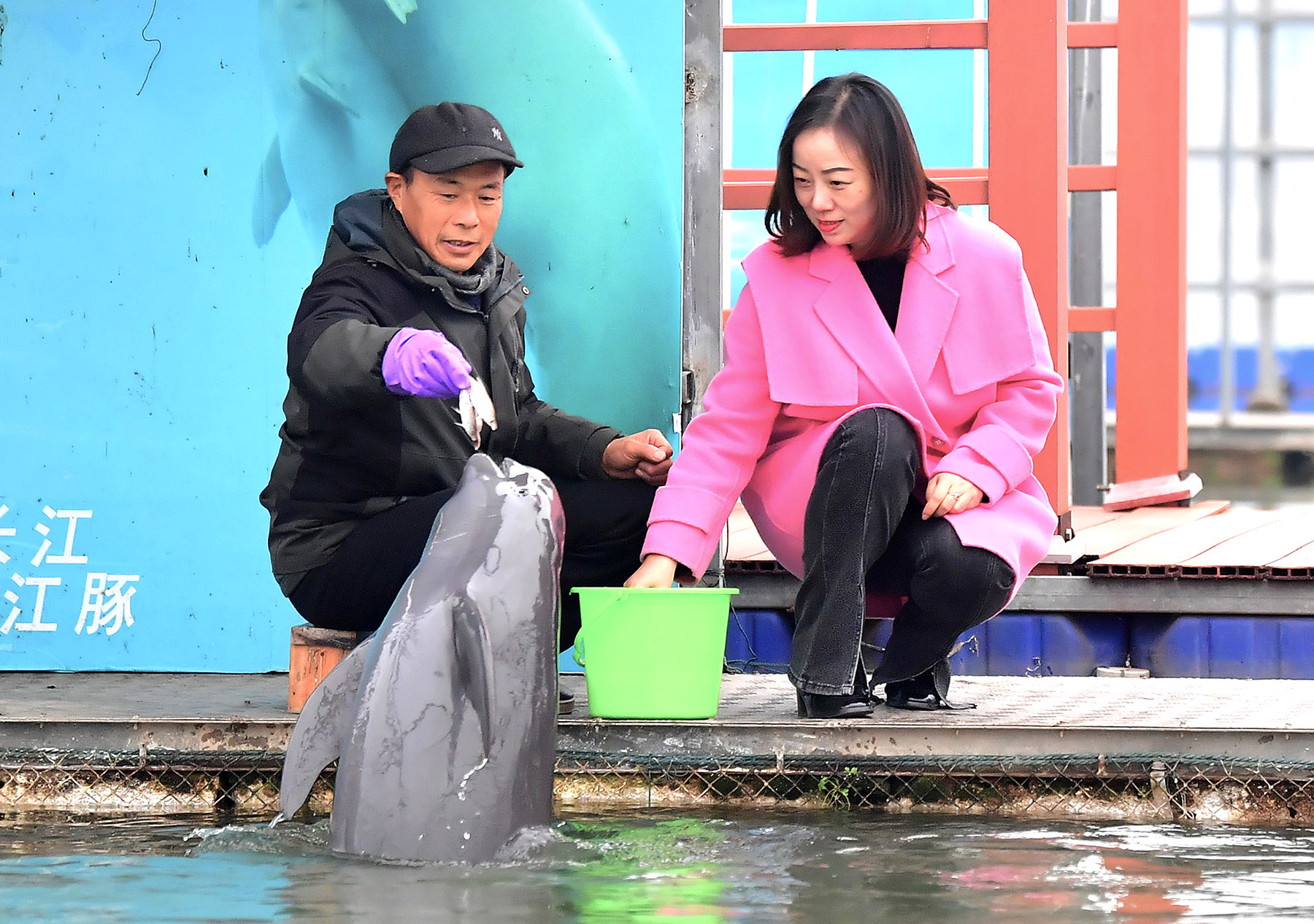
Significant improvement
In 2015, 81.8 percent of the national monitoring stations located in the Yangtze River Basin reported "fairly good" water quality, according to the Ministry of Ecology and Environment. By the end of last year, the proportion had shot up to 98.5 percent.
Under China's quality system for surface water, the quality of water is considered as being "fairly good" if it reaches Grade III or above. Water with a quality of Grade III is good enough for most aquatic organisms to live in.
The ministry said the quality of water in the Yangtze's trunk has stayed at Grade II since 2020.
Guo Lanfeng, an official with the National Development and Reform Commission, said the country has made significant breakthroughs in promoting ecological conservation and restoration in the Yangtze thanks to a series of measures that have followed the principle of stopping overdevelopment and adhering to green development that prioritizes ecological protection.
In a recent news conference organized by the State Council Information Office, the official highlighted the great endeavor to restore ecosystems and ramp up pollution control in the Yangtze River Basin.
Aside from imposing a decadelong moratorium on fishing in the Yangtze in 2021, the country has also enhanced the management of the river's shorelines, cracked down on illegal wharves and violations in sand exploitation, and removed small-scale hydropower stations.
A series of projects have also been launched to plant trees in areas along the Yangtze and remediate lakes and wetlands, he continued.
The causes of pollution in the Yangtze mainly come from the land, not the water, Guo stressed.
He said the country has taken intensified action in five areas to enhance pollution control in the Yangtze River Basin, namely involving chemical enterprises, urban sewage and waste treatment, the shipping industry, agricultural production and tailing ponds.
More than 9,000 chemical enterprises have been shut down, relocated or have switched to produce other products, he noted, adding that the Yangtze's encirclement by chemical plants has essentially been addressed.
In Yichang, where the chemical industry is a pillar of the economy, efforts have not only been made to close, relocate and transform its 134 chemical plants along the Yangtze, but also to put chemical companies onto a more environmentally friendly development track.
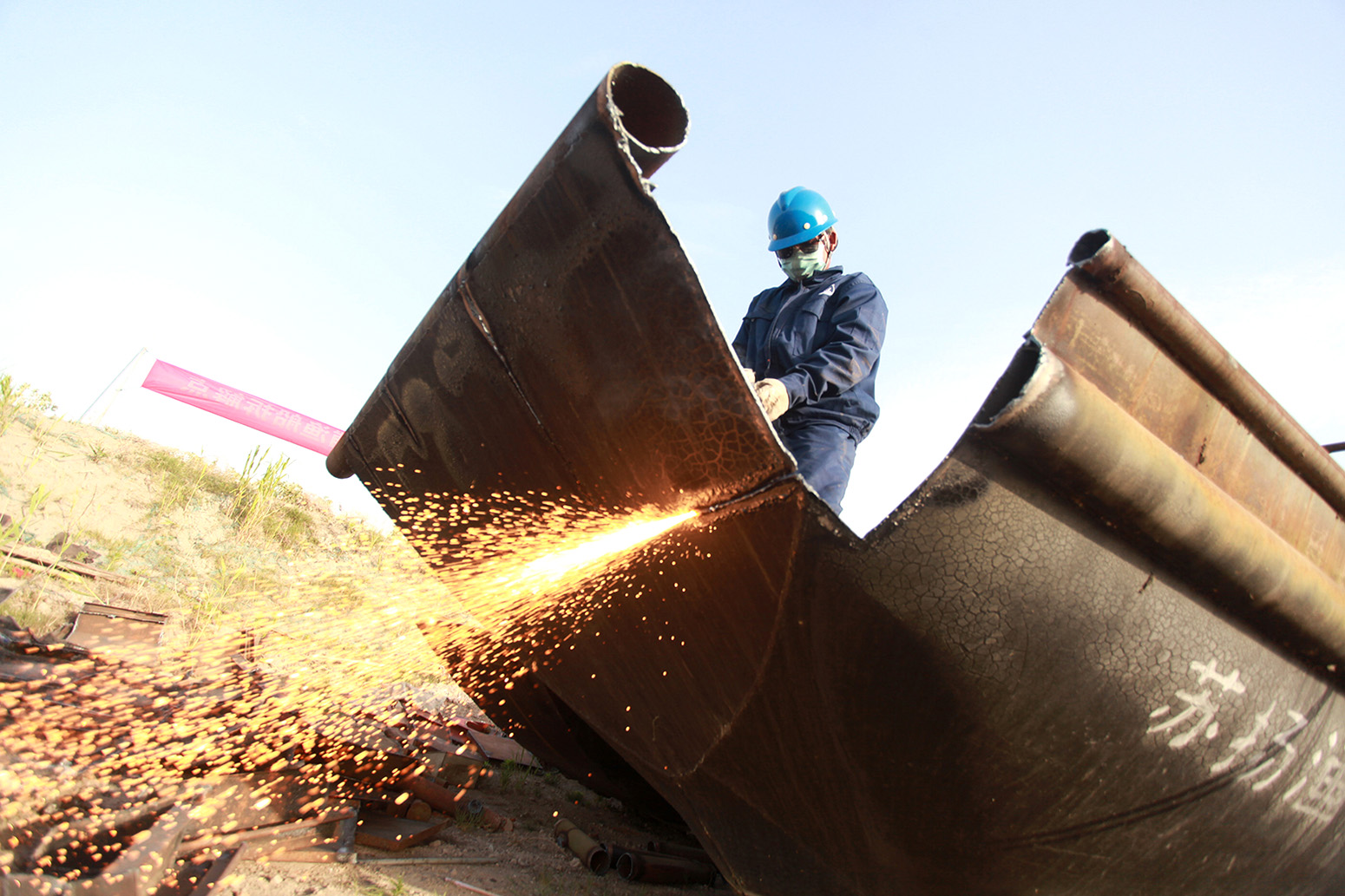
In early 2018, the Yichang government unveiled a plan to promote green transformation in its chemical sector. Following that, the city built up two eco-friendly chemical industrial parks each with an annual output value of more than 100 billion yuan, said Song Xianglin, deputy head of Yichang's economy and information technology bureau.
All those plants in the parks should not only meet the country's requirements for Yangtze conservation, but also national standards for safety and environmental management, he added.
"The density of total phosphorus in the water that flows downstream from the Yangtze section in Yichang has dropped by almost 60 percent from five years ago," he said.
To further reduce water pollution from industrial parks in the Yangtze belt, the Ministry of Ecology and Environment launched a dedicated campaign in 2021, according to the ministry's Yangtze administration.
As of the end of last year, 330 new centralized wastewater treatment facilities and 31,000 kilometers of pipeline for sewage collection had been built in the campaign, the administration said.
It noted, however, a series of challenges in Yangtze conservation.
Some areas in the Yangtze River Basin still suffer from prominent pollution during the flood season, and the inadequate ecological infrastructure remains a salient problem. A lot of work also still needs to be done to further enhance emission reduction from industrial sources, it said.
ALSO READ: Advisers diligent in shaping environmental policy
The natural shorelines in some sections of the Yangtze's main trunk and tributaries have been encroached upon, leaving aquatic ecosystems damaged, it continued. With low coverage of aquatic vegetation, some key lakes in the basin have seen the natural balance of their ecosystems severely disrupted.
The ministry said it will strive to promote the coordinated management of water resources, aquatic ecosystems and the water environment, instead of mainly focusing on pollution control.
Guo, the NDRC official, said the environmental conservation and high-quality development of the Yangtze are now at a "crucial juncture" for the transition from quantitative to qualitative changes.
"We will unwaveringly adhere to the principle of pursuing overall ecological conservation and not large-scale development, putting greater efforts into high-level protection and high-quality development, and continuously propelling all aspects of our work to new heights," he said.
Contact the writers at houliqiang@chinadaily.com.cn


